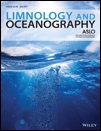 An oceanography journal has retracted a 2017 paper by a group of researchers in China after learning from a reader that one of the authors had a bogus affiliation in the United States.
An oceanography journal has retracted a 2017 paper by a group of researchers in China after learning from a reader that one of the authors had a bogus affiliation in the United States.
The paper, “Southward migrations of the Atlantic Equatorial Currents during the Younger Dryas,” appeared in early spring in Limnology and Oceanography, a publication of the Association for the Sciences of Limnology and Oceanography (limnology is the study of fresh-water bodies). It had three authors: one from Shanghai, one from Wuhan and one, a Chaoyang Zhang, identified as being on the faculty of the Georgia Institute of Technology (otherwise known as Georgia Tech). But that last part was false — no Chaoyang Zhang works at Georgia Tech.
Alarm bells sounded, the journal investigated and turned up other reasons to be concerned about the paper. According to the notice, which it sent to the entire association (more on that in a moment):
The article by Youjia Zou, Xiangying Xi, and Chaoyang Zhang entitled “Southward migrations of the Atlantic Equatorial Currents during the Younger Dryas” (doi 10.1002/lno.10529) published in Limnology & Oceanography has been retracted by journal Editor in Chief, Robert W. Howarth, the Association for the Sciences of Limnology & Oceanography, and Wiley Periodicals, Inc. Author Zhang had no affiliation with the Georgia Institute of Technology as claimed, and the authors have been unable to provide information that would allow verification of critical aspects of how the research was conducted, leaving the journal unable to verify the intellectual integrity of the data and work. The paper was first published online on 29 March 2017 in Wiley Online Library (wileyonlinelibrary.com) and subsequently in the July 2017 issue #3 of volume 62 of the journal, pages 1732–1741.
Adrienne Sponberg, director of communications and science for the ASLO, told us that:
The e-mail message to ASLO members about the retraction is consistent with the Society’s policies of communicating clearly and transparently with our members about any new developments (positive or negative) in our key programs and services.
Our journals, including the flagship L&O, are among the most recognized and valued offerings ASLO provides to its members, subscribers, and the aquatic science community at large. It would be unthinkable for us not to alert our members in a matter like this. It is important for our members and readers to know that we take these matters very seriously, and that the Editor-in-Chief and ASLO responded thoroughly and rapidly when a reader brought a confidential inquiry to us regarding the paper.
Sponberg said her group was unaware of any other retractions involving the authors.
However, in accordance with COPE guidelines, we have informed the authors’ institutions of the retraction as well.
We’ve criticized journals in the past for keeping quiet about retractions, so it’s nice to see an example of the opposite. Although it might be impractical — if not impossible — to alert all subscribers to every journal to new retractions, society publications should consider ASLO’s approach.
We emailed Xi, the corresponding author of the paper, for more information but haven’t heard back. We’ll update this post if we learn more.
Hat tip: Chris Mebane
Like Retraction Watch? Consider making a tax-deductible contribution to support our growth. You can also follow us on Twitter, like us on Facebook, add us to your RSS reader, sign up on our homepage for an email every time there’s a new post, or subscribe to our daily digest. Click here to review our Comments Policy. For a sneak peek at what we’re working on, click here.
There are no acknowledgements in the paper – presumably someone paid for the ship time, the palynologist’s and geochemist’s salaries. The work is well outside the previous scope of the authors’ previous papers – a climate modelling paper with no information about the model, and two papers papers about numerically modelling ships. Some more thoughts at https://quantpalaeo.wordpress.com/2017/09/02/palaeo-papers-can-be-retracted/